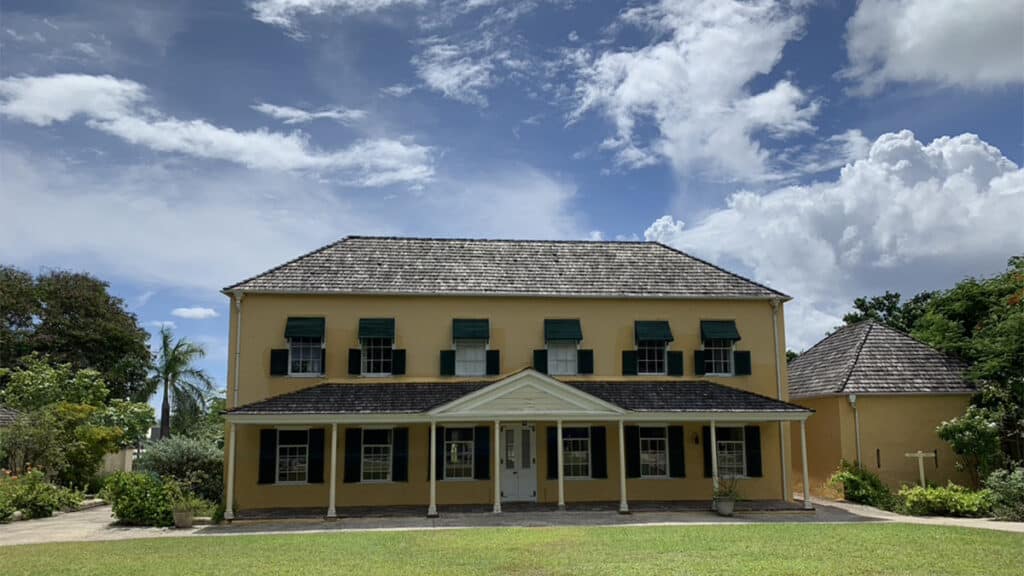A quarter century before he was catching Hessians in Trenton, George Washington was catching sharks in the middle of the Atlantic.
When his brother Lawrence fell into ill health, the thought was that the tropical climes of an island at the edge of the Caribbean would prove an elixir.
And so the Washington brothers began a journey to the island of Barbados, catching sharks and pilot fish and dolphin, and struggling to “entice with a baited hook two Barracudas,” as George wrote in his journal.
George and Lawrence arrived in Barbados on Nov. 4, 1751, and the two would spend two months on the then-British-controlled island — the only trip George Washington would take outside of the United States in his lifetime.
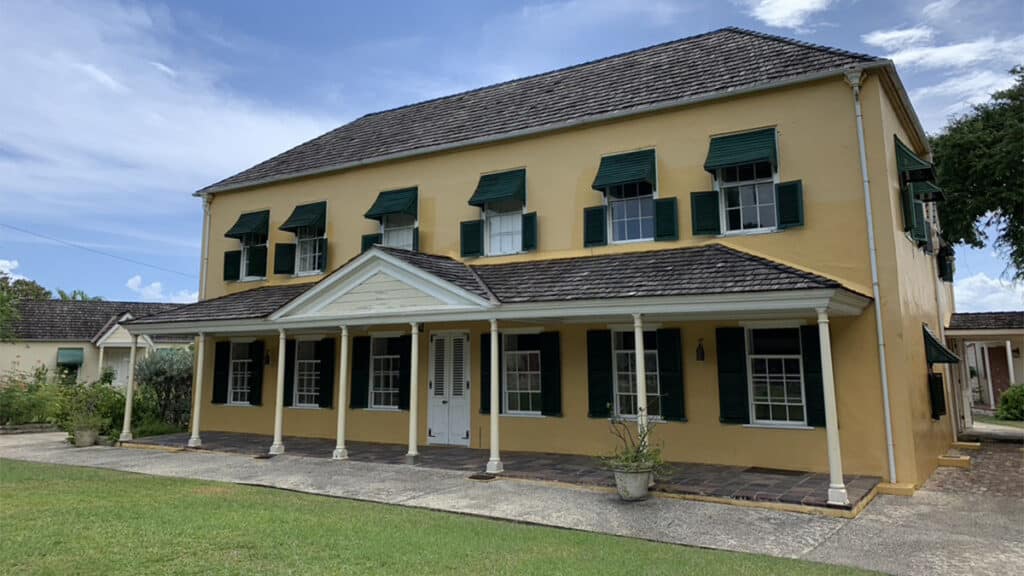
The pair would spend the entirety of their trip at Bush Hill House, a yellow house with green shutters in the heart of Bridgetown that is today a snapshot of Washington’s brief sojourn in the West Indies.
The house, today a museum open to the public, is part of the Garrison, the wide-ranging district in Bridgetown that is now a UNESCO World Heritage site, comprising a former British military prison, the Main Guard, the Garrison Savannah (which found life a century later as a home for horse racing) and the Bush Hill House, which is actually the oldest residence in the Garrison Historic Area.
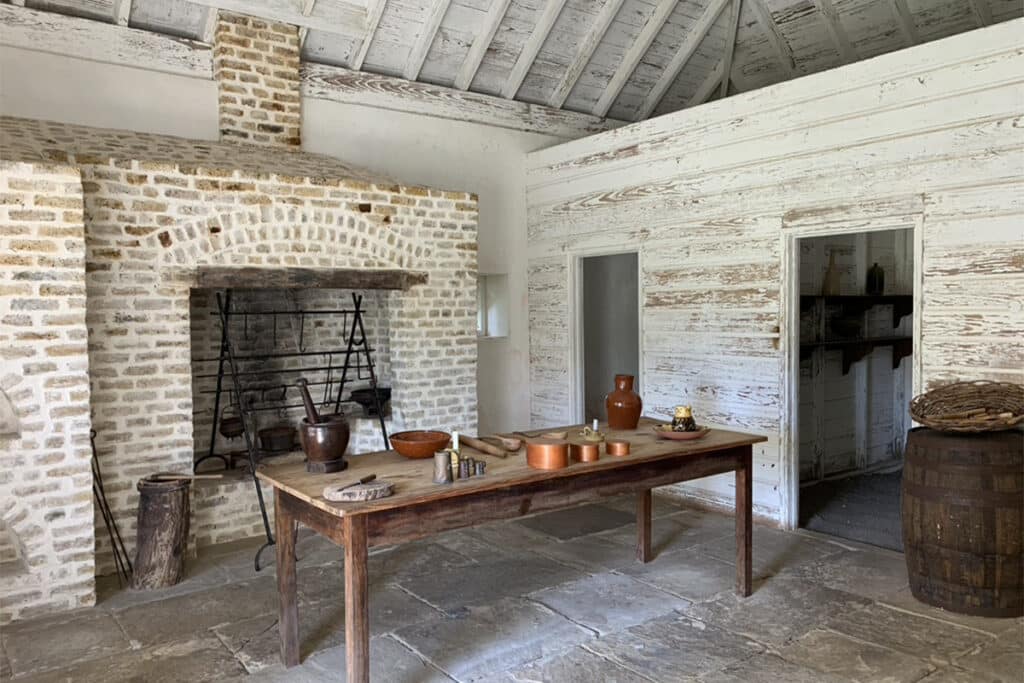
The home today is largely the same as it was when the Washingtons stayed there; in the 1850s, another veranda was added, and the second story was added in the early 19th century, according to the Bush Hill Trust.
The visitor center includes a small cinema that regularly shows a Washington docu-drama.
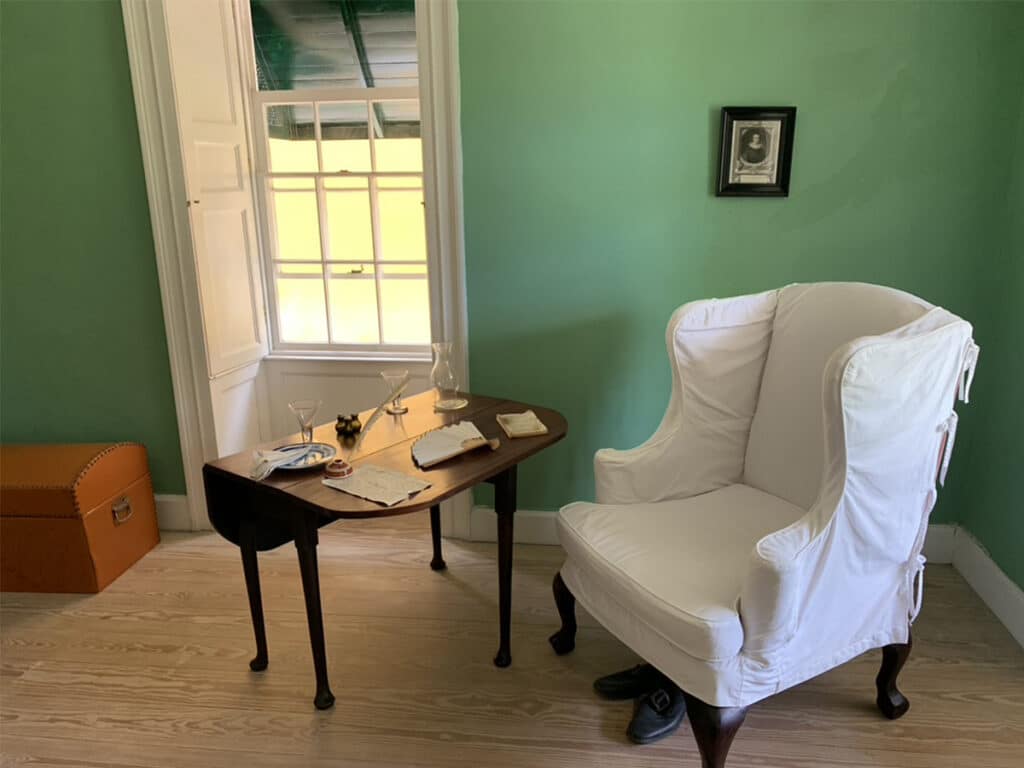
The furnishings in the house today are reproductions, bought from craftsmen in Barbados and in Colonial Williamsburg, and, though the house is largely empty today, one can without much trouble imagine a 19-year-old Washington in these rooms, just embarking on one of his century’s most impactful lives.
But the footprint is the same, the place the future American founding father called home during a time in Barbados that included dinners at the fort with British officers, a production of the Tragedy of George Barnwell; and, in Washington’s view, an after-dinner sampling of “the greatest collection of fruits I have yet seen,” a Bajan cornucopia of pomegranates, oranges, lemons, galas and granadilla (Note: The fruit on the island is still that good).
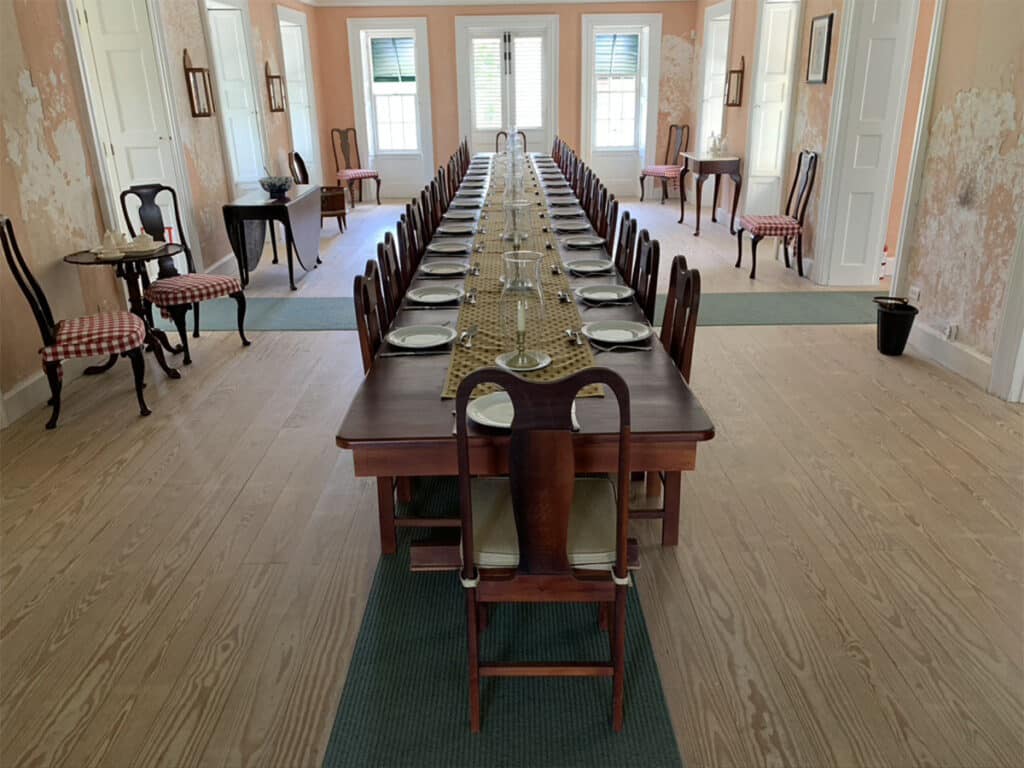
But the trip was not all sweet oranges; Just a few weeks after George had arrived, he was “strongly attacked” with smallpox, from which he would not recover — for nearly a month.
His recovery, and subsequent immunity, would prove astonishingly important in the War period, when the virus ravaged soldiers across the Continental Army — but not Washington.
The brief diary chronicles Washington’s meetings on the island, his encounters with sugar cane, his observation of the island’s “hospitality and genteel behavior” and, again, his love affair with Barbados’ fruit.
“There are many delicious fruits in this,” Washington wrote. “None pleases my taste as does the pine[apple].”
Barbados’ weather and natural beauty did not solve Lawrence’s condition; he passed away a year later at Washington’s longtime home in Mount Vernon. But the island did not leave the Washington brothers.
Years later, when an older George was inaugurated as the first president of the United States, he was insistent on the inclusion of one item in the celebration: Barbados rum.
For more, visit Barbados.
